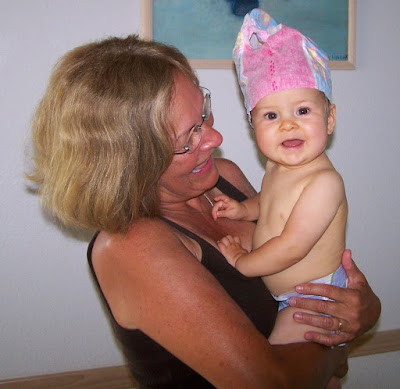Growing Up Evangelical: Facts of Life
 |
| You Can't Be Serious |
That babies come from God was one fact openly taught in Sunday school, though a fact with many sub-details that went unmentioned. Adam and Eve's genesis is certainly among the facts of life, though the process of forming people from clay or a rib was obviously a preferable lesson when placed side by side with the story of how Cain and Abel came to be. (2)
Having learned that God individually made the first two people, I assumed for awhile that God continued doing something like that, making and then giving each baby directly to her mothers. But here's another fact: all the mothers I knew were married. So imagine the confusion when my five year old self walked in on a discussion about an unmarried woman who was "in trouble" because she was pregnant. Angry and close to tears, I reminded everyone in the room that God made all the babies and gave them out and that no one should be in trouble for having a baby. The conversants very quickly changed the subject, perhaps believing that God, also responsible for dispensing fact of life information, hadn't yet gotten around to me.
Elementary education gave little information on the subject though the curious among us did all we could to unearth the story of our beginnings. Though I don't remember anyone specifically asking me about it, I attempted one day to fill in some of the gaps for neighborhood friends and offered what I figured to be a good stab at the process. Later that evening my mother received a worried call from another mother. Mom quietly called me away from the table and asked me what I had said to the children in the neighborhood. As I repeated my lesson to her, Mom rolled her eyes and telephoned the neighbor back. "Nothing to worry about," she told the lady. "She has it all wrong."
However avoided, fact of life education still managed to happen from time to time, mostly unexpectedly. Once, during a perfectly harmless discussion at a church middle school retreat, we came across a word in the Bible I had never seen and asked, "What does fornication mean?" KJV, of course. I recognized the "uh oh" blush of the teacher. On another occasion the word circumcision evoked a similar response.
While few facts of life were ever offered in Sunday school or other evangelical youth events, I have since discovered that the Bible has a great many shockingly candid teachings and stories, hopeful benefits as well as potential and serious problems. Both Old and New Testaments describe in detail a variety of boundaries and prohibitions and what happens when they are ignored. So take your pick for a good Sunday School curriculum if you dare.
High school didn't prove to be very helpful in the quest. An obviously literate friend attempted to provide some details, but she became increasingly frustrated as I repeatedly asked for further explanation of terms foreign to me. Her conclusion? My parents had failed me. I've since decided, however, that her cadre of information exemplifies the misfortune of knowing too much too soon--just as dangerous as too little too late.
After Paul and I were engaged during our senior year in college we received as a shower gift a book that turned out to be the most comprehensive facts of life manual of its time. For two people who, fortunately or unfortunately, knew next to nothing about the matter--perhaps even for those who knew much, much more---just. plain. too. much.
It was childbirth preparation classes where I learned the most unembarrassing, though admittedly somewhat tardy, education ever. While I had by that time grasped a little of the mystery, much mystery still lay ahead. Like this one: once the baby gets in "there," how does she, at 7-9 pounds, get out? That question was the impetus for taking the classes. Along with other expectant couples we were required to listen to names of various reproductive body parts and processes spoken right out loud; as a result, I became conversant enough to share all I was learning with my extended family, disturbing some. As if I was swearing.
What goes around comes around, and all too soon we move from criticizing the omissions of others to defending our own. Like when 3rd grade Kara unknowingly exposed our fact of life neglect during a church Christmas party for Pioneer Girls (3).
One of our familiar Christian creeds confesses that Jesus "was born of the virgin Mary," but we Evangelicals don't often elucidate the phrase. That Jesus was born in the way of all human beings makes some of us uncomfortable enough to wish he had been given, like we imagine Adam was, full-grown to the world; that Matthew and Luke had begun their stories the way Mark and John do.
As Kara's Pioneer Girl teacher read the story of Mary at the Christmas party that night, one of Kara's better-informed friends raised her hand and asked a question using the words "pregnant" and "sex" (4) in the very same sentence. While I have my doubts that Kara was the only Pioneer Girl to register a new word that night, she was evidently the only girl to ask aloud, "What's sex?" Her question was met with shocked blushes and then giggles, so she asked again. And then again. And yet again. The only answer she received was the sound of laughter.
The next day an adult friend who had heard about the incident from someone else told me about it: "A very unfortunate display of ignorance," my friend reflected. To this day I'm not sure if she meant my ignorance or Kara's, but since this friend didn't have children for whom not to answer difficult questions, I gave her a pass. Later that night I pulled both my daughters aside and "what I had received"(5) concerning the gift of life I passed on to them. I'll leave you to figure out what that means and how it went. The only thing I'll offer here is that one of my daughters remembers the conversation while the other says it never happened.
Why, I ask, is it so hard for some to recount this most important, intimate, relational, common human reality? And why is the language reserved for sharing this matter so often reduced to jokes and vulgar words? I've asked myself those questions countless times and have decided that, despite all the ways sexuality is shoved in our face and spun through every thread of our lives by movies, television and conversation, the facts that brought us all here will always and forever bring us face to face with a holy mystery that makes many of us uncomfortable. And because facts of life deserve the care holy things require, we struggle to speak of them.
Maybe our instinctual fact of life pauses and potential stumbles--the way we whisper, tiptoe and even avoid the matter--are simply in line with the way we respond to the Sacred. All the more reason why all facts of life beg to be courageously, honestly and carefully discussed in church where the sacred is at home.
(1) Facts of Life was for me the acceptable nomenclature for how to, and only when absolutely necessary, speak about sex. There are a great many facts.
(2) Even the Bible is careful with explanations. The word knew in Genesis 4:1 seems obvious; Eve came from Adam so how would she not know him? It turns out that a lot of people in the bible know one another. Context is everything.
(3) Pioneer Girls was a program meant to be, at least in part, an evangelical answer to Girl Scouts.
(4) Pregnant was not a word I was encouraged to use as I was growing up. And the most specific, correct and biological names of body parts and processes, of course, were understood to be offensive. Once, when I was a teen, I shared a joke with friends at a church dinner in which the word "butt" was important. I was overheard, dismissed from the table and chastised. It didn't matter to those disciplining me that, had I used a more appropriate word like "bottom" or "fanny," there would have been no joke.
(5) From 1 Corinthians 11:23, a verse I love. We can do little more than to pass on what we have received and hope what we pass on is true, helpful and not too embarrassing.


Comments